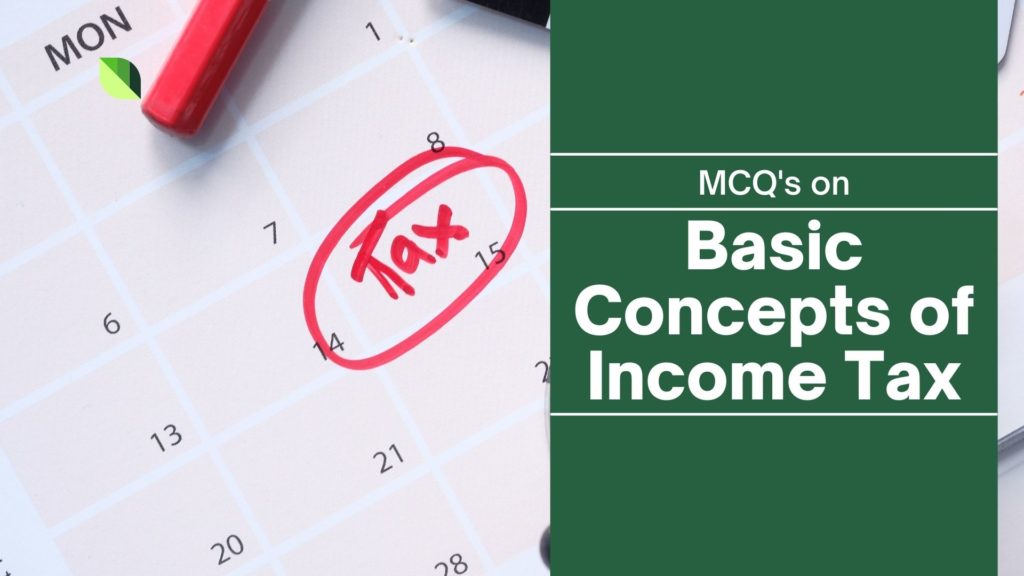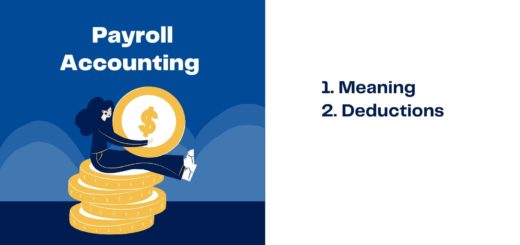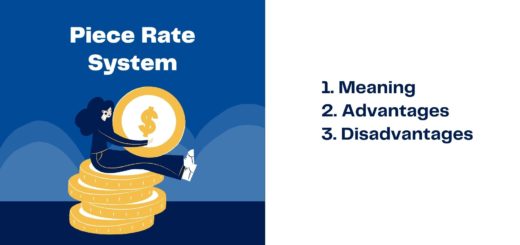Basic Concepts of Income Tax MCQ | 50 Free MCQs
Basic Concepts of Income Tax MCQ
1. Income tax extends to ……………….. of India.
a. Whole of India
b. Whole of India except Jammu & Kashmir
c. Whole of Maharashtra only
d. None of those
2. Income tax is a tax on ………………
a. Salary
b. Income
c. House Property
d. Profit
3. In all there are ……………… number of section under the Income-tax Act, 1961.
a. 298
b. 290
c. 304
d. 398
4. The rate of tax on Income is decided every year by the .…………….
a. GST Act
b. Income Tax Act
c. Finance Act
d. Income Tax Rules
5. Income tax Act came into force from ………………….
a. 31st March 1960
b. 1st April 1947
c. 1st April 1969
d. 1st April 1961
6. Constitution is the …………….. in India.
a. Parent Law
b. Univeral Law
c. Main Law
d. None of the above
7. The constitution of India empowers …………… to levy tax on income.
a. State Government
b. Central Government
c. Local Government
d. None of the above
8. Gross Tax Liability – …………. = Net Tax Liability.
a. Tax Deducted at Source (TDS)
b. GST
c. VAT
d. House Tax
9. The Finance Bill is introduced by ……………….. .
a. Finance Secretary
b. Commerce Minister
c. Finance Minister
d. None of the above
10. Finance Bill, once approved, becomes ……………….
a. Finance Act
b. Finance Law
c. Finance Ordinance
d. None of the above
| Answers: 1)Whole of India 2)Income 3)298 4)Finance Act 5)1st April 1961 6)Parent Law 7)Central Government 8)Tax Deducted at Source (TDS) 9)Finance Minister 10)Finance Act |

11. The act provides for …………….. of the assessee.
a. determination of income
b. determination of total income
c. None of the above
12. The ……………….. on the total income is decided every year by passing the finance act.
a. rate of tax
b. Amount of tax
c. Tax
d. None of the above
13. The constitution of India empowers …………….. to levy tax on income.
a) State Government
b) Central Government
c) Parliament
d) Finance Minister
14. Income Tax is a tax on ……………. .
a) Income
b) Profit
c) Turnover
d) Expenditure
15. The Income Tax Act, 1961 has 298 ………………… .
a) Sections
b) Sub-sections
c) Clauses
d) Sub-clauses
16. The ………… makes the amendment in the form of omission, insertions and substitutions in the Income Tax Act.
a) Finance Bill
b) Finance Minister
c) Finance Act
d) Parliament
17. The Income Tax Act extends to ……………….. of India.
a) States
b) Union Territories
c) Citizens
d) Whole
18. Gross Tax Liability is calculated on …………… .
a) Gross Total Income
b) Net Taxable Income
c) Income
d) Salary
19. Shivaji University is assessable under the Income Tax Act as
a. An Individual
b. An artificial juridical person
c. A local authority
d. None of these
20. AOP should cosists of :
a. Individual only
b. Person other than individual only
c. Both the above
d. None of these
| Answers: 11)determination of total income 12)rate of tax 13)Central Government 14)Income 15)Sections 16)Finance Act 17)Whole 18)Net Taxable Income 19)An artificial juridical person 20)Both the above |
21. The term H.U.F. stands for:
a) Hindu divided family
b) Human undivided family
c) Hindu undivided family
d) Human divided family
22. Residential has nothing to do with:
a) Constitution
b) Citizenship
c) Censorship
d) Change
23. A.O.P. is the abbreviation used for:
a) Association of persons
b) Association of professors
c) Association of Panchayats
d) Associate of person
24. A.O.P. should consist of:
a) Individual only
b) Persons other than individual only
c) Both of the above
d) None of the above
25. Body of individual should consist of :
a) Individual only
b) Persons other than individual only
c) Both of the above
d) None of the above
26. Residential status of an individual depends on the stay of the assesses in India during the:
a) Calendar year
b) Accounting year
c) Assessment year
d) Previous year
27. A person by whom any tax is payable under Income Tax Act 1961 is called as:
a) Individual
b) Tax Receiver
c) Assessee
d) None of the above
28. The financial year in which the income is earned is called as the:
a) Assessment year
b) Present year
c) Previous year
d) Current year
29. An company is always resident in India:
a) Industrial
b) Individual
c) Indian
d) Investment
30. Income Tax Act extends to:
a) Whole of India
b) Whole of India except Jammu & Kashmir
c) India and Sri Lanka
d) None of these
| Answer: 21)Hindu undivided family 22)Citizenship 23)Association of persons 24)Both of the above 25)Individual only 26)Previous year 27)Assessee 28)Previous year 29)Indian 30)Whole of India |
31. A new business was set up on 15-11-2019 and it commended its business from 1-12-2019. The first previous year, in this case, shall be :
a) 15-11-2019 to 31-3-2020
b) 1-12-2019 to 31-3-2020
c) 2017-2020
d) None of these
32. Shivaji University is assessable under the Income Tax Act as:
a) An Individual
b) An Artificial Juridical Person
c) A Local Authority
d) None of these
33. Income Tax Act has …………. schedules.
a) 23
b) 14
c) 298
d) 40
34. 58 (1) (a) (ii) is read as …………….
a) Section 58 schedule (1) clause (a) sub-clause (ii)
b) Section 58 clause (1) sub-section (a) schedule (ii)
c) Section 58 sub-section (1) clause (a) sub-clause (ii)
d) Section 58 sub-section (1) clause (a) schedule (ii)
35. In 59 (3) (b) (iv), (b) is ……………
a) Section
c) Sub-section
c) Clause
d) Sub-clause
36. …………… are definite, specific, complete and full.
a) Exhaustive definition
b) Inclusive definition
c) Sections
d) Clauses
37. A firm is regarded as a unit of assessment as per …………….. .
a) Income Tax Act
b) Partnership Act
c) Companies Act
d) Finance Act
38. ………….. is chargeable u/s 45.
a) Capital Gains
b) Profit and Gains
c) Dividend
d) Voluntary Contribution
39. Income includes …………..
a) Dividend
b) Voluntary Contribution
c) Capital Gains
d) All of the above
40. Any sum of money received in excess of ……….. without consideration is chargeable to tax.
a) 5,000/-
b) 50,000/-
c) 5,00,000/-
d) 55,000/-
| Answer: 31)15-11-2019 to 31-3-2020 32)An Artificial Juridical Person 33)14 34)Section 58 sub-section (1) clause (a) sub-clause (ii) 35)Clause 36)Exhaustive definition 37)Income Tax Act 38)Capital Gains 39)All of the above 40)50,000/- |
41. Previous year can be of ………… 12 months.
a) More than
b) Less than
c) Only
d) Any
42. Any sum received or receivable in cash or kind under an agreement for not carrying out an activity in relation to a business is called as ……………….
a) Pin Money
b) Mutual Activity
c) No Competition Deal
d) Non-compete Agreement
43. ………….. is expected to be a periodical monetary return.
a) Salary
b) Profit
c) Income
d) Interest
44. …………… are not taxable.
a) Losses
b) Personal Gifts
c) Illegal Income
d) Awards
45. ………… received by the wife is not taxable.
a) Pin Money
b) Compensation
c) Gift
d) Salary
46. The term ‘Person’ includes …………….
a) HUF
b) AOP
c) BOI
d) All of them
47. Partners are liable to pay tax on …………. received from firm.
a) Salary
b) Profit
c) Income
d) Both (a) & (c)
| Answer: 41)Less than 42)Non-compete Agreement 43)Income 44)Personal Gifts 45)Pin Money 46)All of them 47)Both (a) & (c) |
Learn the chapters on TYBCOM from our YouTube channel.


